If you visit Belgrade and don't see the Tesla museum, I'm sorry to say, but you're missing out on a unique experience. The museum goes beyond the simple monumental type of exhibition but with experiential learning presents us the brilliant Mr. Tesla and his inventions.
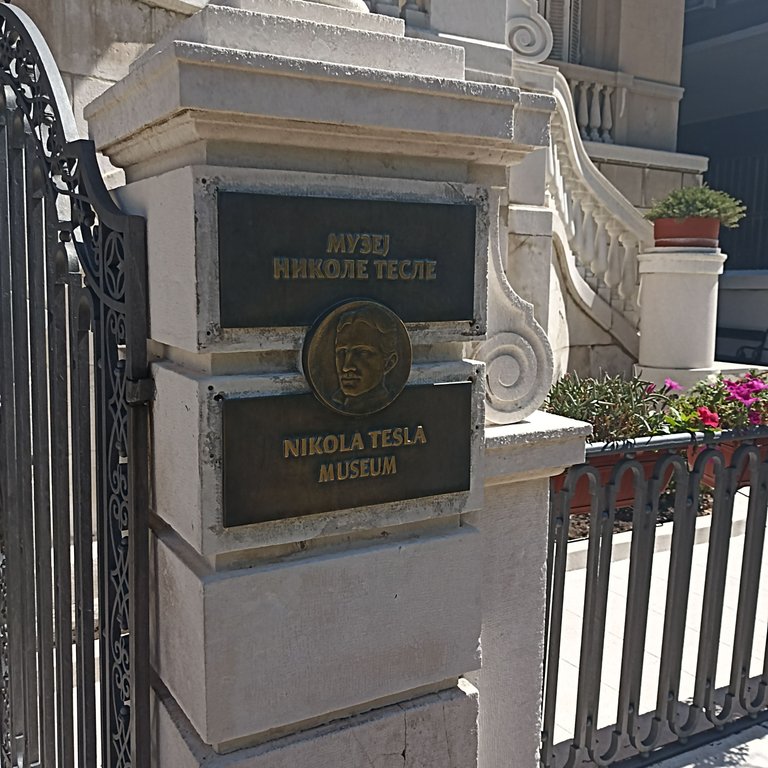
Already from the outside you are impressed as the museum is installed in a two-story neoclassical building, which, as the very kind tour guide informed us later, belonged to a wealthy family of the city, but was later renovated and used for the needs of the museum.
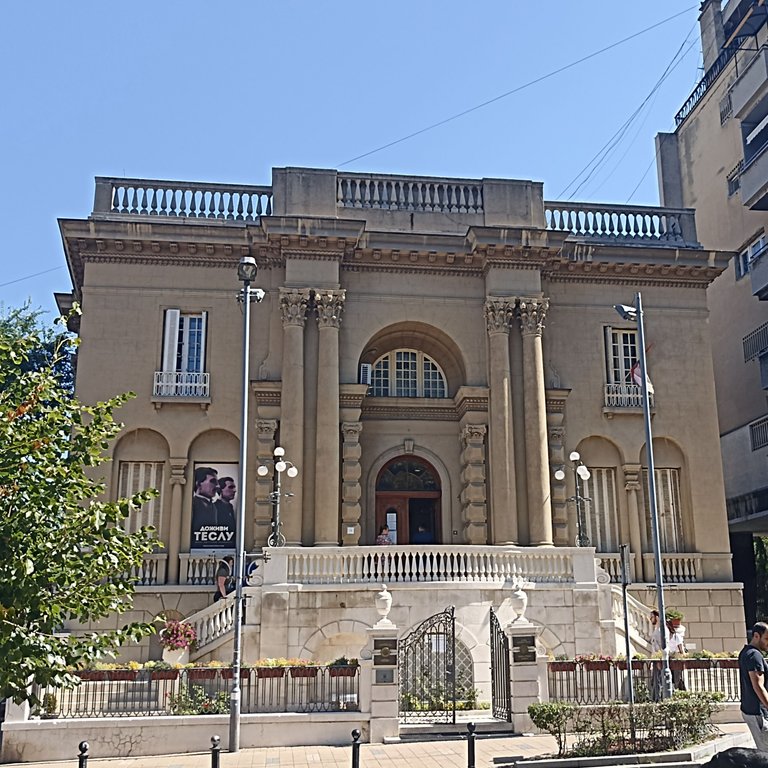
Another thing that impressed me was the way that the museum was regulated. Tour every hour, alternating between English and Serbian, fast service and the museum employees, mostly young people, all speaking English fluently. (to the point where I felt bad about my English and I consider to be somehow fluent).
As soon as we entered the museum, a ten-minute documentary about the life of Nikola Tesla and his inventions, as well as his constant struggle to finance his experiments, began.
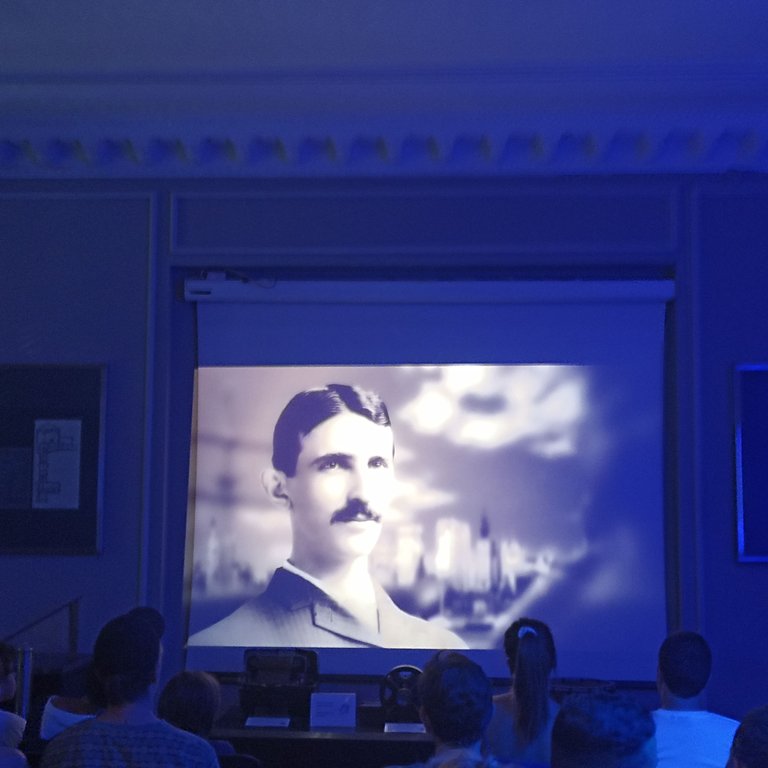
Just a few words about the life of Nikola Tesla...
Tesla, a very intelligent man, born in 1856 in an Croatian village from a Serbian ethnicity family (there is a dispute whether Tesla should be called Serbian or Croatian, but as far as I know he thought himself as Serbian). Even though he did not manage to complete his studies, had the vision of the wireless transfer of electricity and energy (remember the Wi-Fi we all have at home... and this was Tesla's idea was based).
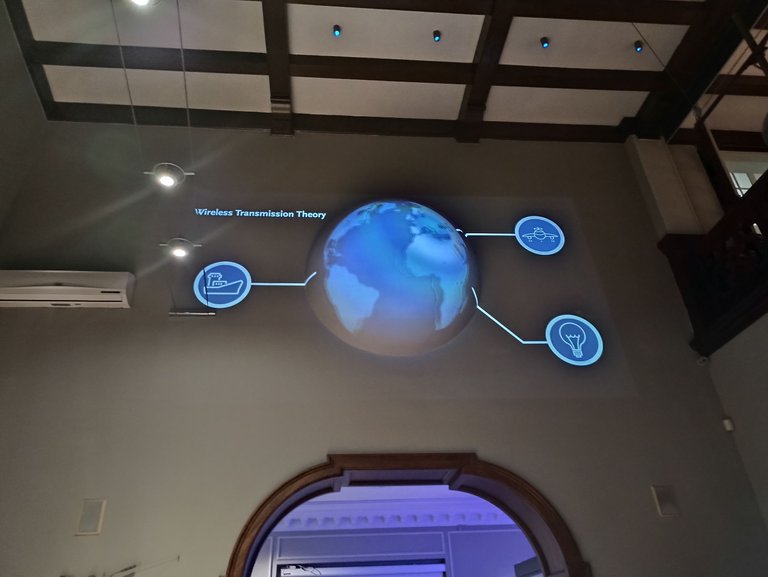
He believed in alternating current as opposed to direct current which was prevalent at the time due to Edison's supremacy and created patents with the help of his financiers, (which a fellow museum visitor told me also had something to do with the invention of the electric chair, didn't know that), even managing to harness the power of Niagara Falls to create a hydroelectric plant.
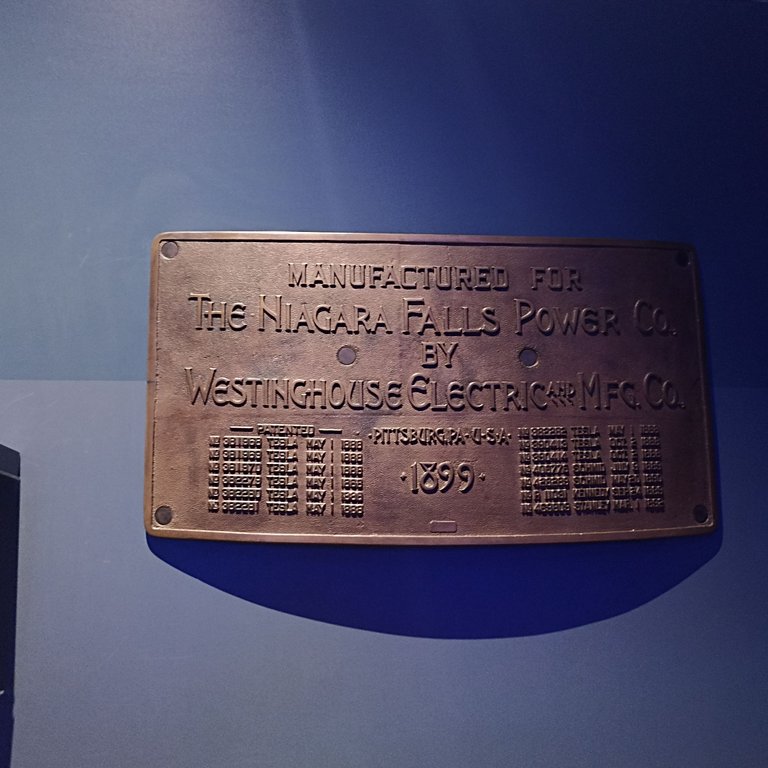
Even when the slander from Edison and his ilk destroyed him and his associates, Tesla did not give up on his dream of alternating current and atmospherically transmitted energy. I don't know if you've seen the movie The Prestige with the electrical experiments done by Nikola Tesla played by David Bowie.
He continued to try to implement his ideas, even when the circumstances were not favorable for him. And he managed to patent over 300 of his inventions all over the world. Much of what we take for granted today is based on Tesla's inventions: alternating current, fluorescent lamps, even the television, radio, and Wi-Fi.
Tesla died alone due to heart failure in a hotel room, in 1943.
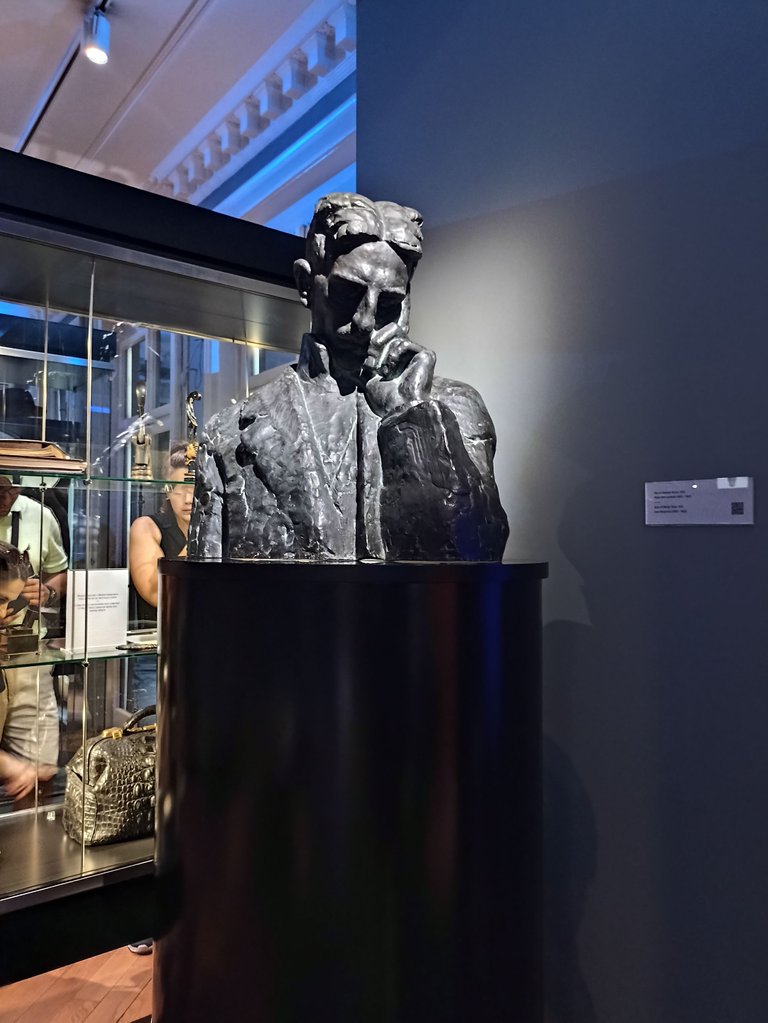
The museum honors the great inventor by displaying both his inventions and his personal belongings, in two great halls of the first floor. Of course the most impressive is the one containing Tesla's large coils and his other inventions.
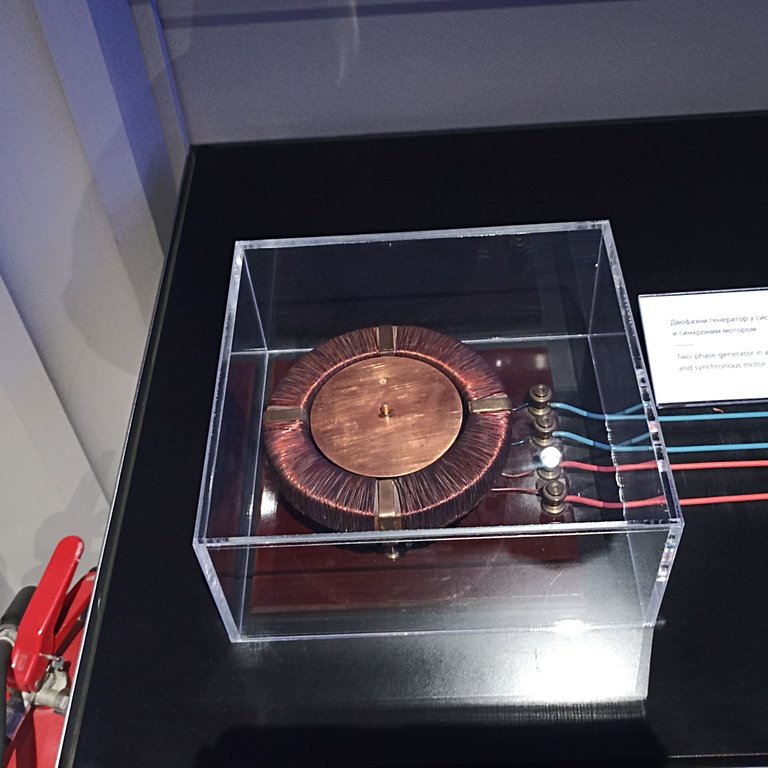
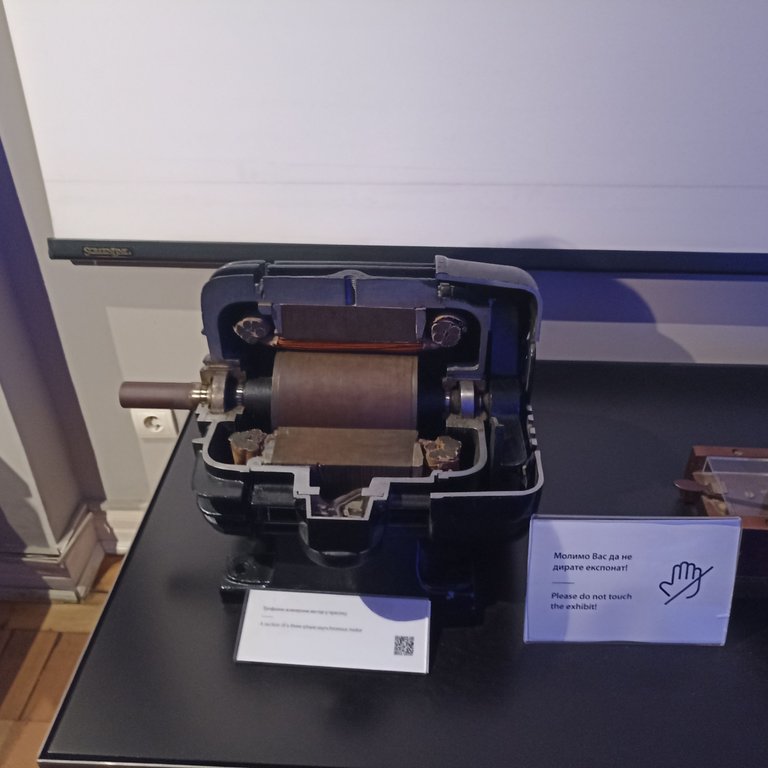
Our tour guide, after the video finished, showed us (and explained) some of Tesla's inventions. The most impressive thing was the big Tesla coil that we actually saw up close, that is, we experienced Tesla's theory in practice, as we were given fluorescent lamps for a small experiment.

As soon as the large coil was brought into operation, the lamps which we held in our hands without being connected to anything, lit up. The little ones who took part in the tour were delighted. Okay, let's not lie, we adults were also in awe of this phenomenon. (Too bad, I didn't get the chance to take a photo, was too busy playing with the justmade "lightsaber"...)
In fact, it wasn't the only coil in the room, as they also had two smaller ones, one of which even lit up a fluorine sign without needing another power source.
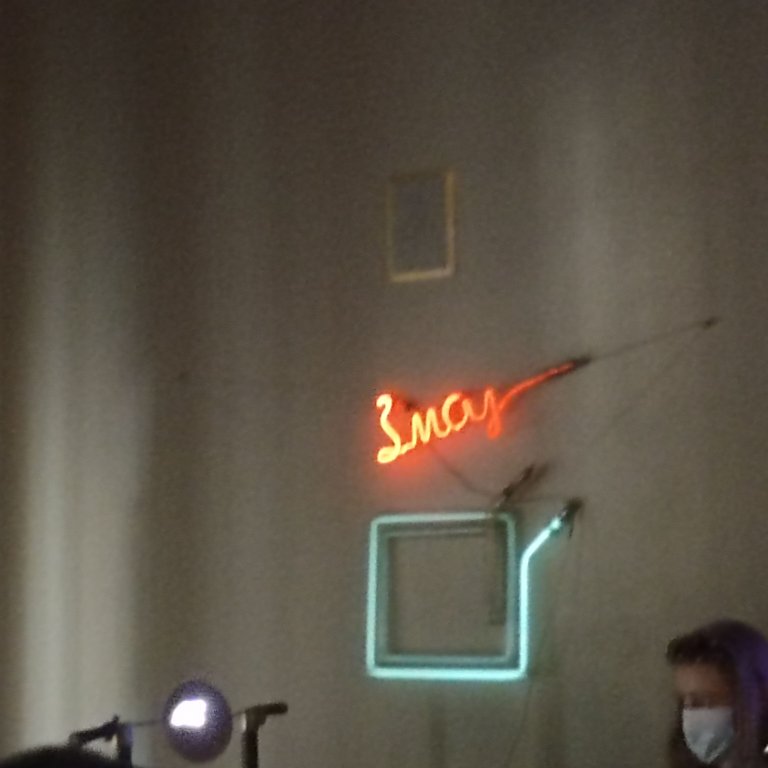
There were so many exhibits in the museum halls that one hour was not enough to see them in detail. I can't help but mention: the remote controlled ship model before it even existed as a concept, an asynchronous motor also called the Columbus Egg,
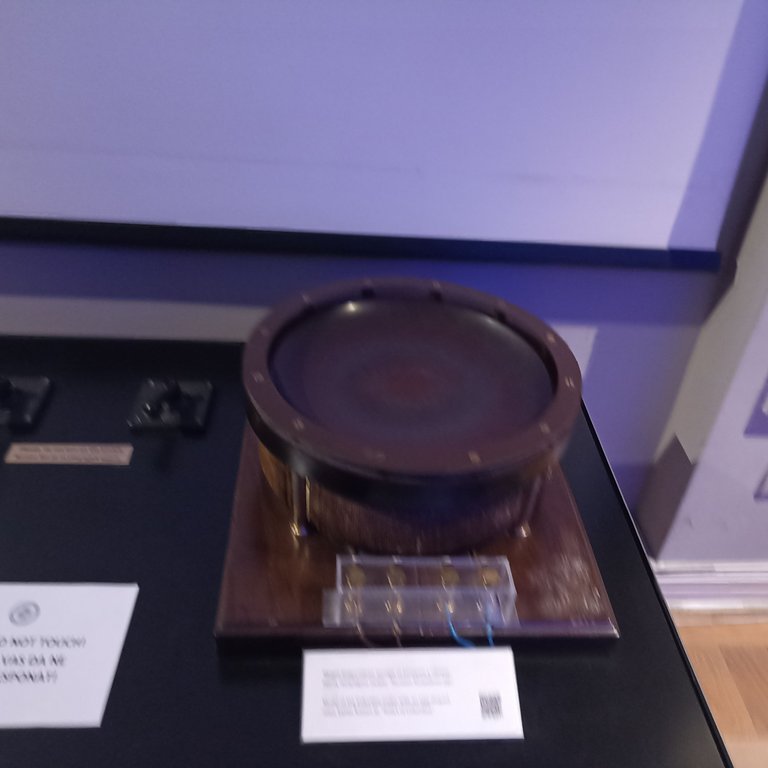
a remote control unit for a miniature boat,
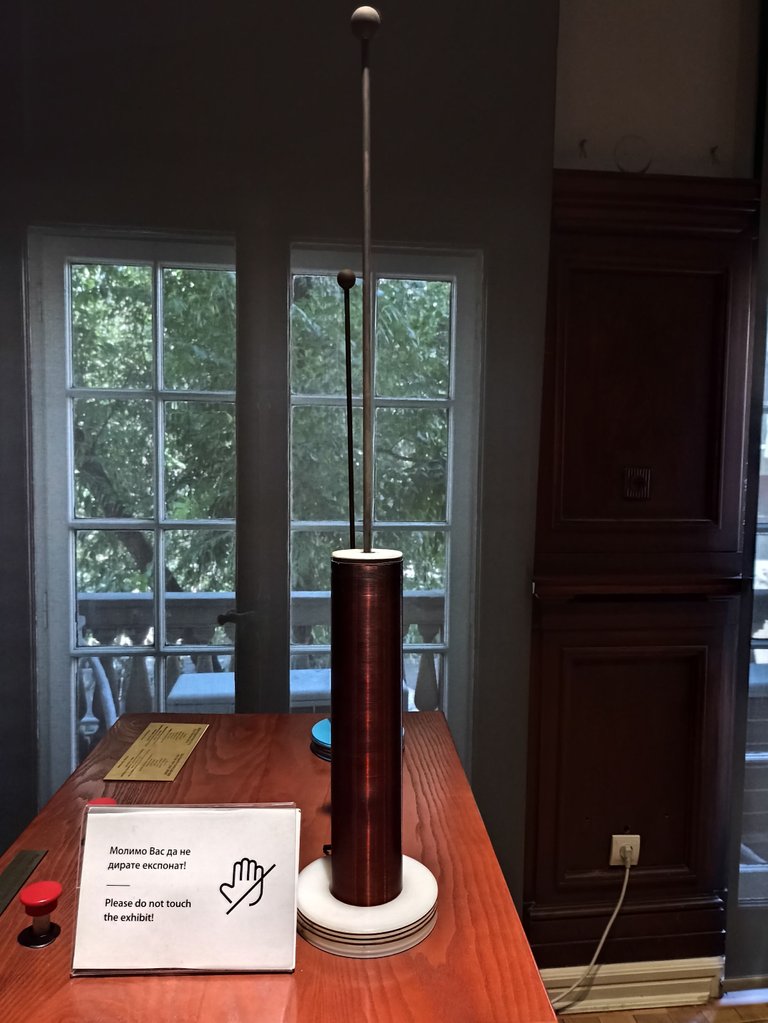
the round urn containing his ashes, making this museum essentially the last resting place of this great inventor.
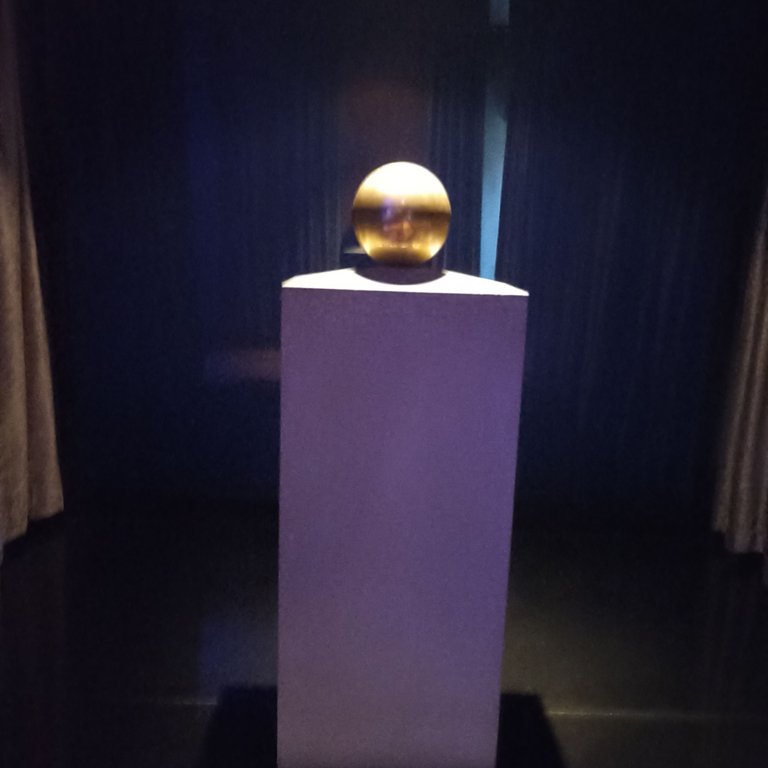
Apart from his inventions, Tesla was a very solitary and methodical man. His personal items, that are exhibited in the museum, the suit he wore, his gloves, his watch,
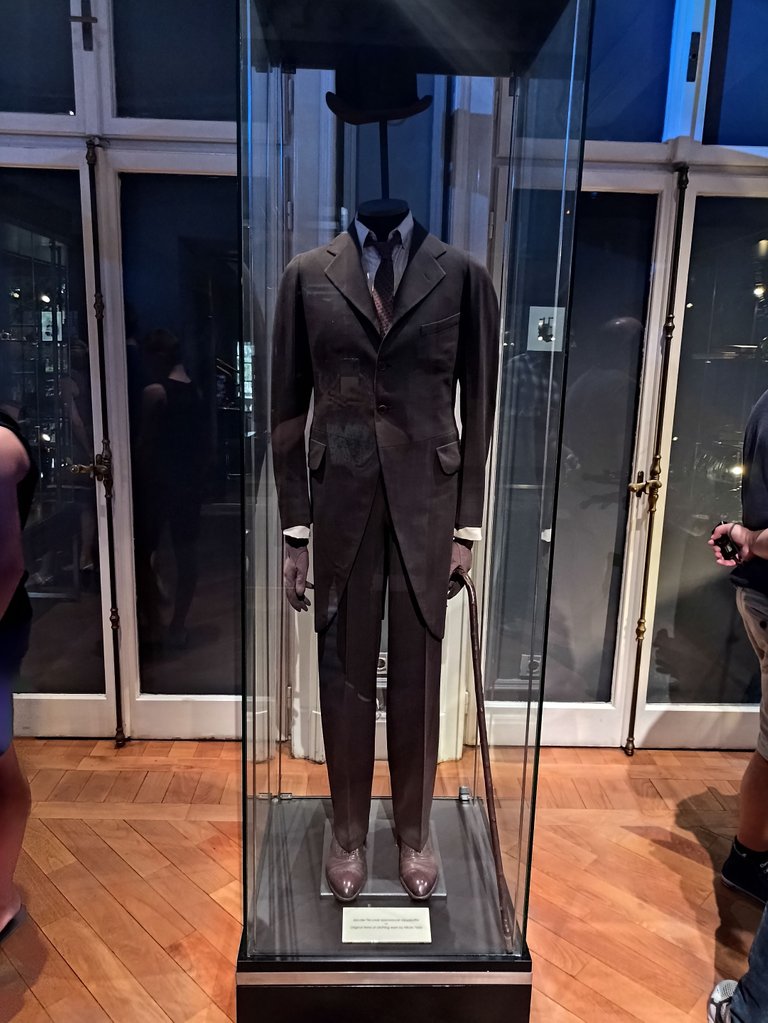
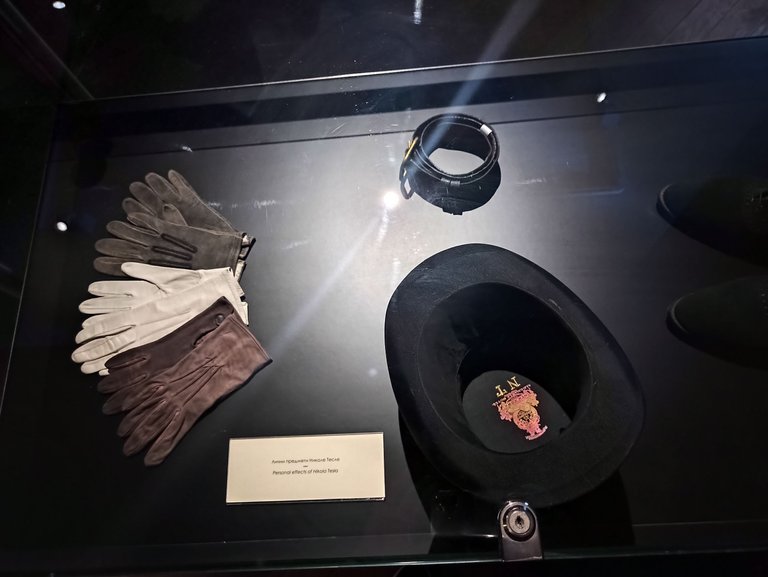
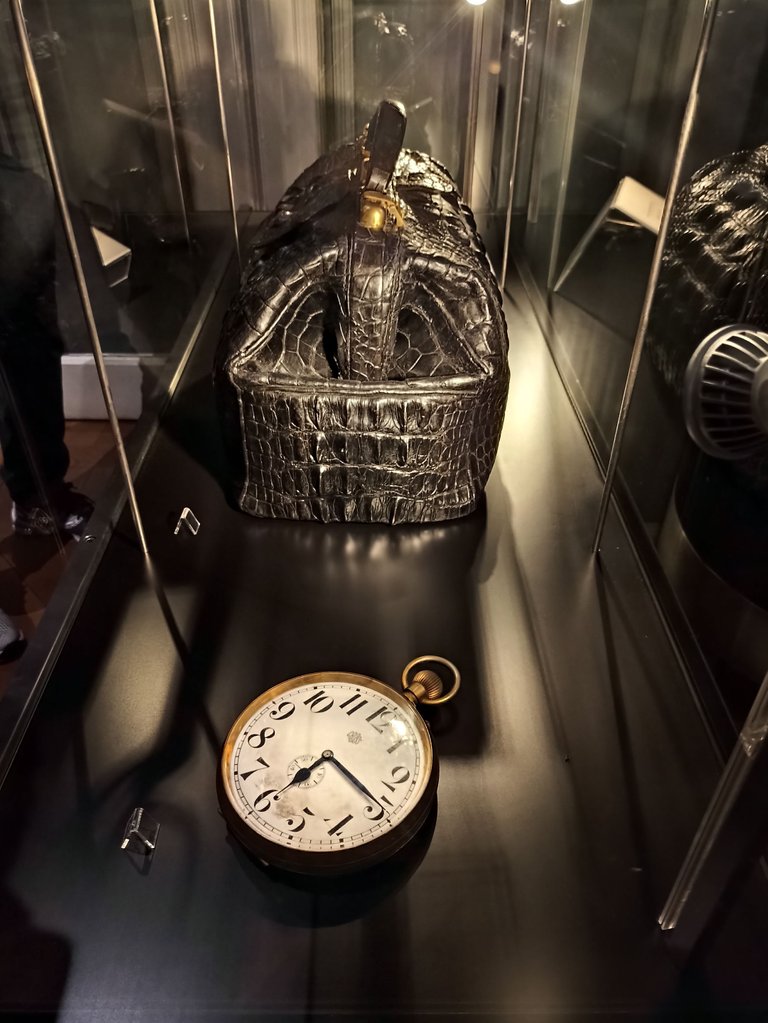
the bequeathed documents and letters displayed in the museum all show a person who was primarily interested in inventions. His notes, his patents, a tireless servant of science who, although he laid the foundations for everything we use today, was not recognized as he should have been during his lifetime.
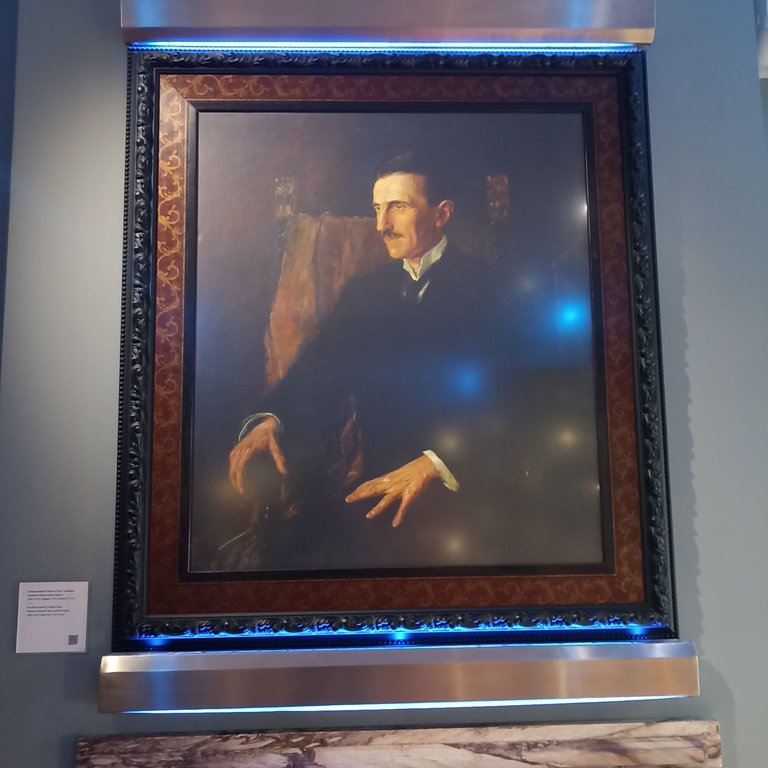
Now gradually the mentality has started to change and we realize the power of his mind but also how much more he could have created if he ran into obstacles. The sceptical man in the portait (the only portait that he posed for during his life) made me think that even in his rest this man kept thinking how to make our world a better place. Because apart from all the others ideas he had, Tesla was the first to talk about renewable energy resources. He was a visionary, a pioneer of human thought and he devoted his life to science.
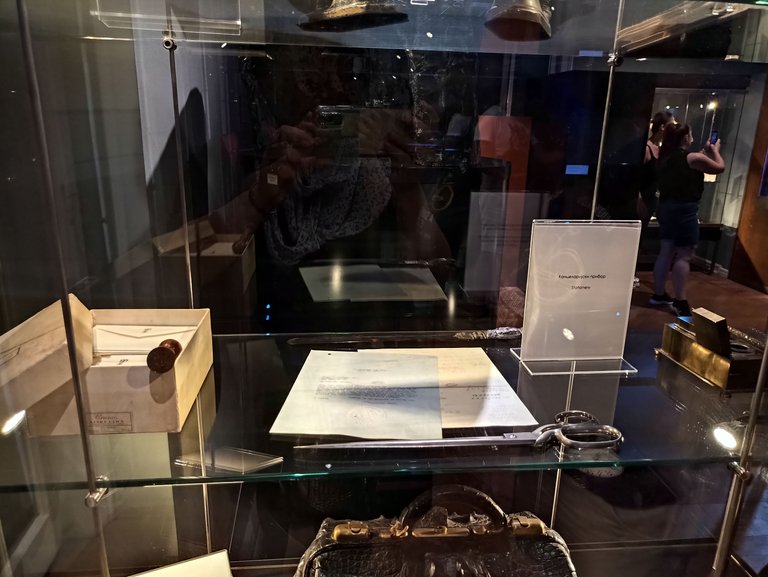
The visit to the museum costed 800 serbian dinars, that means about 7 euros per person. And believe me, it's worth every cent. The guides are very helpful and willing to solve any question (I should probably apologize here if I tired them, I had enough questions) and the place helps you get into the mood of the time and realize the greatness of Tesla's thinking.
Any visit to Belgrade must include a visit to the Tesla Museum. It is a unique experience for both young and old to get to know the man who inspired so many later but also contributed immeasurably to our daily lives.
You can find more information about thw museum in the official site: https://nikolateslamuseum.org/en/
Thank you for reading!
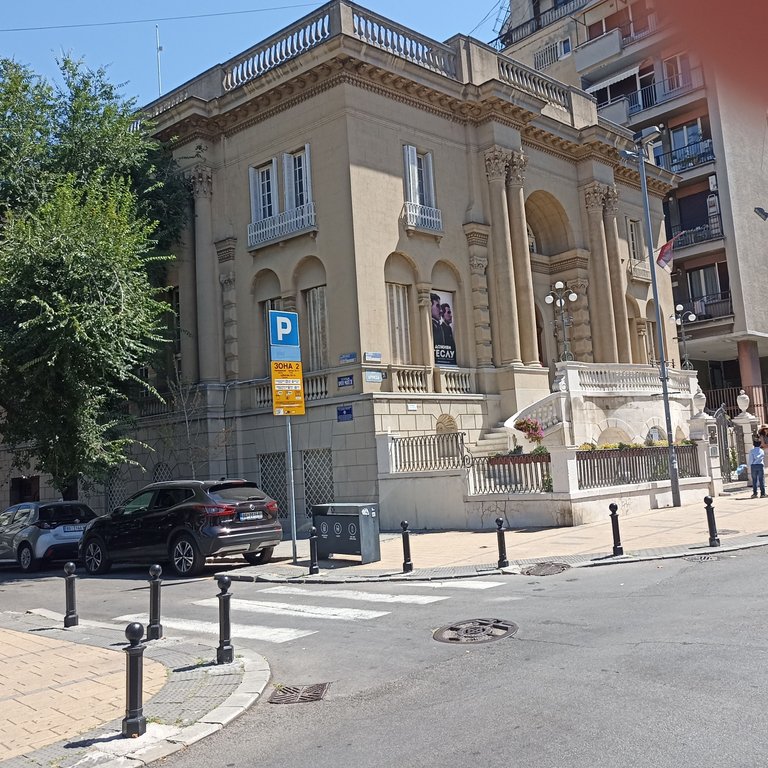
All photos were taken by me with the help of my mobile phone.

